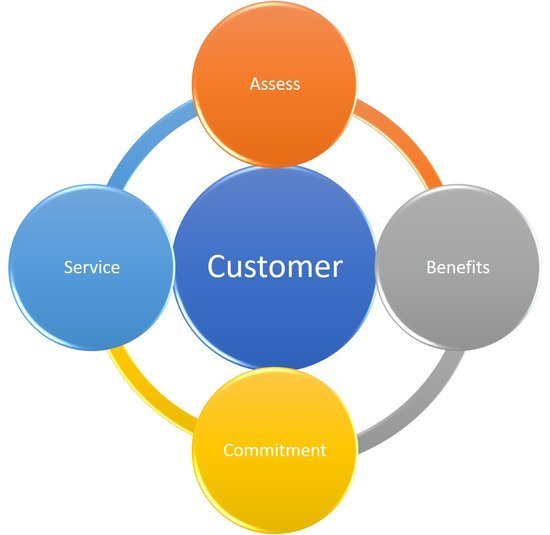The ABC’s of Relational Selling
Nowadays, a relational salesperson is a business consultant, partner, and problem solver for their customers. A relational salesperson tries to build a long-term business relationship that benefits the customer, end-user, and themselves.
It’s a win for the customer because they have a partner in the form of a salesperson. It’s also a win for the end-user because they end up with higher quality/lower cost products. And, of course, it’s a win for the salesperson because they have loyal, long-term customers!
3 Requirements to Build Loyalty
The dynamic, ever-changing nature of business today means that many salespeople know far more about their industry and their products than potential buyers.
For that reason, salespeople today need to provide industry and product information to their customers that will enable them to make the best decisions possible. Once those decisions have been made, the relational salesperson provides ongoing service and follow-up after the sale to ensure customer satisfaction with the purchase.
When taken together, the right information at the right time, combined with customer service and follow-up after the sale builds customer loyalty.
Understanding what it takes to build customer loyalty is just the first step. Next, the relational salesperson must follow the relational selling cycle.
The ABC’s of Relational Selling
There are four main elements in the relational selling cycle. They are the ABC’s of relational selling: Assess, Benefits, Commitment, and Service.

Assess Needs
Salespeople must first assess the customer’s needs. This assessment includes understanding the customer’s short- and long-term needs. Then, this customer assessment is merged with industry trends and specific product information to develop the ideal selling solution.
Present Product Benefits
Buyers buy benefits. Product benefits are what serves the customer’s interests. Benefits are distinct from product features. Relational salespeople focus on presenting product benefits that solve the problem discovered in the needs assessment.
Commitment
The relational salesperson has confidence in the recommendation they make to their customer. They know their recommendation will meet a need or solve a problem for their customer. So, they confidently ask for the order!
Service
No relational salesperson worth his or her salt disappears after the sale is closed. The relational salesperson follows up personally after the sale to make sure the customer is happy with every aspect of their purchase decision.
So, there you have it the basic building blocks of every relational salesperson. The desire to build loyal relationships with customer, and a willingness to put forth the work required to follow the ABC’s of relational selling process!
Join the Conversation
As always, questions and comments are welcome. What element of the relational selling cycle do you think is most important and which requires the most attention?
I’d love your help. This blog is read primarily because of the people like you who share it with friends. Would you be kind enough to share it by pressing the share button?

